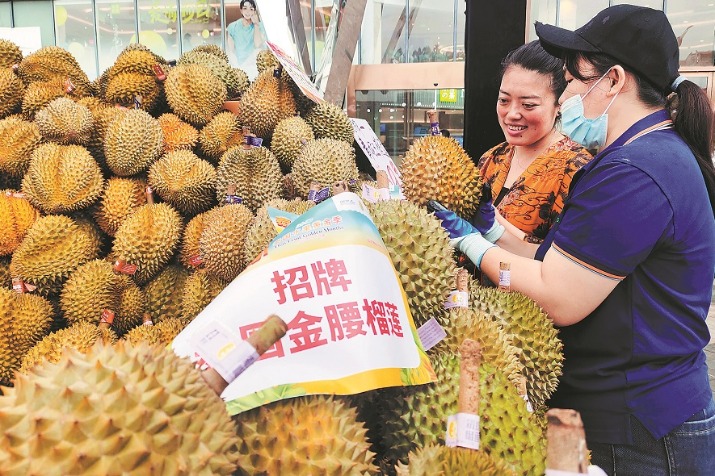Taking the initiative to ensure food security
China Daily | Updated: 2022-03-09 07:45

Food prices have recently risen sharply, as a result of the COVID-19 pandemic and the conflict between Russia and Ukraine, as the two countries are major producers of wheat, corn, barley, sunflower seeds and rapeseed.
Russia and Ukraine account for 29 percent of the world's wheat exports and together they account for 19 percent of the global corn output and 80 percent of the world's sunflower oil.
Russia is also one of the world's largest fertilizer exporters. Since fertilizer costs typically account for 33 to 44 percent of grain growers' total operating costs, higher fertilizer prices will further affect production in other major crop producing countries.
In terms of wheat and corn, the impact of the Ukraine conflict on the Chinese market will be relatively limited. Statistics show that China's self-sufficiency rate for wheat is 93.51 percent and for corn 91.16 percent. But China's dependency on imported barley and sunflower seeds is relatively high. Its barley and sunflower seed self-sufficiency rates are only 24.32 percent and 22.36 percent respectively. China is also highly dependent on imports of soybean, palm oil and rapeseed oil.
Thus expanding soybeans and oil crops will become a policy focus in the next five years to reduce the country's dependence on imports.
That's why the central authorities have urged local governments to guarantee grain output and dramatically increase the output of soybeans and other oil-bearing crops in the coming years. This is actually an urgent task concerning the food security of the country given the volatile external development environment.
The country should give more policy support to soybean production and provide the soybean planters with direct financial subsidies. The country should also pilot a price insurance system for soybean farmers, in which the professional advantages of futures companies and insurance companies are given full play.
Since it is hard to expand the soybean planting acreage in a short time at home, it is suggested that the government should encourage more Chinese enterprises to build overseas soybean production bases to increase the supply of soybeans to China.
- 21st Century Business Herald
























